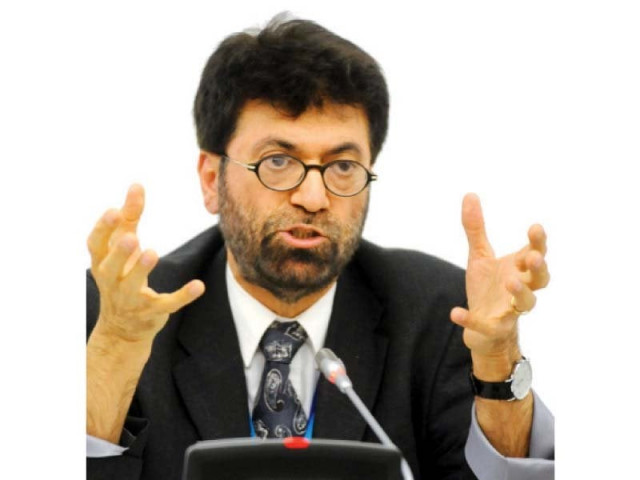Tackling climate change: ‘Expand horizon by addressing energy, cost benefit issues’
Dr Banuri visits GCISC, interacts with scientists

Dr Banuri visits GCISC, interacts
with scientists
Scientist and educationist Dr Tariq Banuri said this during his visit to GCISC on Friday.
He also urged them to expand the horizon of work by addressing issues of energy and cost benefit, besides addressing concerns over conflicts by engaging more social scientists in the scientific work.
Dr Banuri also stressed the importance of having a data base which would be sharable to all researchers and quoted the example of SDPI dedicated server in this regard.
He also stressed the need for more collaborative linkages nationally and internationally.
Dr Banuri asked GCISC scientists to address the rapidly depleting ground water resources in the country, induced by climate change, and accentuated the need for developing skills to tap different sources of funding.
He also urged the scientists to secure their own funding for the centre’s research activities by winning the confidence of donors by more rigorous work. He assured GCISC scientists for providing every possible help in the advancement of centre’s scientific work.
GCISC Head Agriculture and Coordination Muhammad Arif Goheer explained adverse impacts of climate change on agricultural productivity and overall food security in the country. He told that under changing climatic conditions and dwindling water resources, food security in the country will be at stake if effective adaptive measures were not put in place. While presenting findings of crop simulation based findings of the climate change impacts on cereal crops, he stated that yield of wheat and rice could reduce by 5 to 16 per cent and 11 to 22 per cent respectively under different climate change scenarios in different agro-ecological regions of the country by the century end. He mentioned GCISC’s involvement in preparation of greenhouse gas inventory and developing a seasonal forecasting system for monsoon rains.
GCISC Head of Climatology and Environment Shahbaz Mehmood expressed that more temperature rise in northern than southern part of the country was alarming.
Staff members briefed the guest about working of different sections of the centre and presented findings of various studies.
Published in The Express Tribune, January 2nd, 2016.



















COMMENTS
Comments are moderated and generally will be posted if they are on-topic and not abusive.
For more information, please see our Comments FAQ